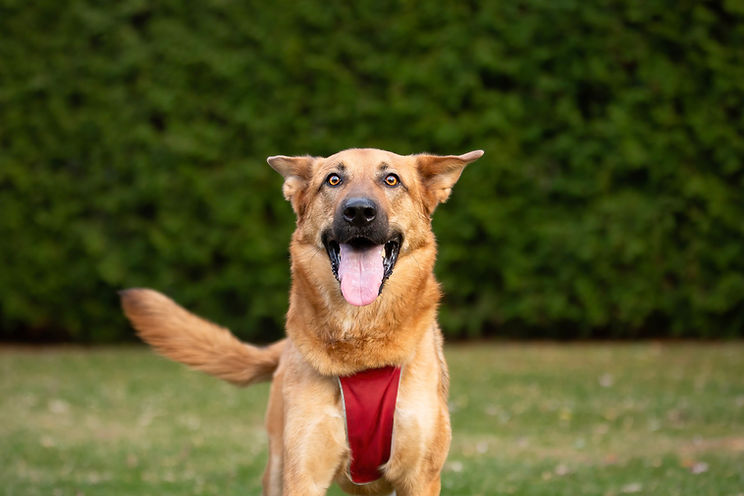Dog behaviourist near me: costs and what to expect in consultations
Recognizing the Role of a Veterinary Behaviourist in Pet Training and Wellness
The role of a veterinary behaviourist is vital in dealing with the detailed connection in between pet dogs and their proprietors. They incorporate vet medication with insights from pet actions science to deal with issues like aggressiveness and anxiousness. Unlike conventional trainers, their technique concentrates on the underlying causes of these behaviors. This nuanced perspective questions regarding the effectiveness of traditional training techniques and how a much deeper understanding can transform pet wellness. What methods do they use to accomplish these results?
What Is a Vet Behaviourist?
A veterinary behaviourist is a specialized professional who concentrates on understanding and addressing the behavioral issues of pets, especially family pets. Their experience combines vet medication and pet habits science, enabling them to identify and treat a wide range of behavior issues - canine behaviourist near me. These experts commonly hold postgraduate degrees, such as a Master's or PhD in pet behavior, and are certified by appropriate organizations, ensuring they possess a deep understanding of pet psychology
Veterinary behaviourists evaluate pets with thorough observation and evaluation, considering aspects such as genes, environment, and training background. They create tailored habits modification strategies, which may consist of desensitization techniques, favorable support strategies, and ecological adjustments. Cooperation with family pet owners is important, as they give advice and support throughout the training procedure. Eventually, the objective of a veterinary behaviourist is to enhance the well-being of the animal while fostering an unified relationship between pet dogs and their owners.
The Value of Recognizing Animal Actions
Recognizing pet habits is important for both family pet owners and professionals in the field of animal care, as it lays the structure for efficient interaction and training. Acknowledging just how animals regard their atmosphere and react to stimuli allows caretakers to create an extra unified living circumstance. Understanding into behavior cues, such as body movement and vocalizations, cultivates more powerful bonds in between animals and their proprietors. By appreciating the all-natural reactions and needs of various varieties, individuals can customize their training approaches to suit these factors, promoting better learning and cooperation. Additionally, a strong understanding of behavior scientific research help in identifying stress factors and prospective triggers, permitting aggressive interventions. Generally, understanding pet behavior not just boosts the well-being of pets but additionally enhances the experiences of those that look after them, eventually bring about much healthier, better connections.
Typical Behavioral Issues Addressed by Veterinary Behaviourists
Vet behaviourists frequently resolve common behavior concerns in pets, including hostility and anxiety reactions. They also concentrate on stress and anxiety and stress management, which can considerably affect an animal's health. Understanding these issues is important for creating efficient training and treatment methods.
Aggressiveness and Worry Responses
While many pet owners may see aggression and anxiety actions as simple behavior issues, these complex reactions usually stem from underlying stress and anxiety or past injury. Vet behaviourists play an essential function in identifying the origin of these behaviors, which can manifest in numerous forms, including growling, biting, or too much worry of particular situations. Recognizing these triggers is essential for creating effective training methods customized per family pet's one-of-a-kind circumstances. Behaviourists utilize approaches such as desensitization and counter-conditioning to assist pet dogs handle their anxieties and aggressiveness. Furthermore, they educate pet owners regarding suitable monitoring methods, highlighting the relevance of persistence and consistency. Attending to aggression and worry reactions not just enhances the pet's top quality of life yet also strengthens the bond between pet and owner.
Anxiety and Stress Administration
Anxiousness and stress prevail problems that numerous family pets face, frequently arising from changes in their setting, absence of socializing, or previous unfavorable experiences. Vet behaviourists play a crucial function in identifying the underlying sources of these issues. They employ different strategies, consisting of behavior alteration, desensitization, and counter-conditioning, to help pet dogs take care of anxiousness. Additionally, they may suggest environmental adjustments, such as creating safe spaces or offering enrichment tasks that promote relaxation. Partnership with pet dog owners is vital, as behaviourists guide them in recognizing their family pet's signals and implementing reliable coping techniques. By resolving stress and anxiety and stress, vet behaviourists add significantly to enhancing the total health and lifestyle for family pets and their news family members.
Just How Vet Behaviourists Differ From Typical Instructors
Vet behaviourists vary from typical fitness instructors mostly in their instructional backgrounds and training. While conventional trainers often concentrate on obedience and standard commands, vet behaviourists stress understanding and addressing underlying behavioral problems, incorporating clinical factors to consider right into their technique. This distinct focus enables them to give a much more extensive therapy for pet dogs with complicated behavioral challenges.
Education And Learning and Training Differences
Recognizing the distinction in between vet behaviourists and traditional fitness instructors is crucial for family pet owners seeking effective training remedies. Vet behaviourists possess innovative levels in veterinary medication, often adhered to by specialized training in pet behaviour. This education equips them to attend to complex behavioral concerns that may come from medical problems or emotional aspects. In contrast, standard fitness instructors generally have accreditations from training programs that concentrate on obedience and standard commands without delving into the underlying psychological or clinical elements. While both specialists intend to enhance family pet practices, veterinary behaviourists can diagnose and deal with behavioral troubles holistically, integrating clinical understanding into training techniques. This essential difference highlights the value of selecting the best specialist based upon the pet's specific needs.
Emphasis on Behavioral Issues
Dealing with behavioral concerns needs a nuanced technique that identifies veterinary behaviourists from standard fitness instructors. While conventional trainers typically concentrate on obedience and fundamental commands, vet behaviourists check out deeper into the underlying sources of bothersome behaviours. They utilize a substantial understanding of animal psychology and therapy strategies, which are rooted in clinical research. This expertise allows them to recognize issues originating from anxiousness, worry, or hostility, as opposed to merely dealing with surface-level signs. Additionally, veterinary behaviourists examine the animal's total wellness, taking into consideration environmental aspects and the pet's history. By incorporating medical knowledge with behavioural methods, they offer tailored services that promote long-lasting behavioural adjustment, making certain both the animal's and owner's top quality of life are significantly improved.
Clinical Considerations Included
While typical instructors might forget underlying clinical problems, veterinary behaviourists focus on an extensive evaluation of a pet's health as a fundamental step in resolving behavioural problems. This technique permits them to recognize possible clinical conditions that may add to unwanted behaviours, such as anxiousness, discomfort, or neurological disorders. By integrating clinical examinations right into their technique, vet behaviourists can collaborate with vets to guarantee a holistic understanding of the family pet's wellness. In addition, they can advise ideal treatments or changes to training strategies based upon medical searchings for. This considerable point of view identifies vet behaviourists from traditional fitness instructors, as they address both behavioral and health-related variables, eventually causing much more reliable and lasting outcomes Get More Information for animals and their proprietors.

The Refine of Collaborating With a Veterinary Behaviourist
Working together with a veterinary behaviourist involves an organized strategy to dealing with an animal's behavioral issues. The process begins with a comprehensive evaluation, where the behaviourist gathers comprehensive info concerning the pet's history, setting, and details actions that are problematic. This generally consists of questionnaires, interviews with the pet dog proprietor, and often monitorings of the animal in its environment.
Adhering to the assessment, the veterinary behaviourist formulates a tailored intervention strategy that may include behavioral modification strategies, training methods, and, if necessary, recommendations for medical examinations. dog behaviourist near me. The plan is made to be useful and achievable, ensuring that it fits perfectly right into the family pet owner's way of living
Subsequent follow-up sessions are essential to monitor progression, change methods, and offer assistance. This joint initiative not just aims to change undesirable habits yet likewise to enhance the general well-being of the pet dog, making sure an unified partnership between the pet and its owner.
Enhancing Your Animal's Lifestyle With Behavioral Support
Enhancing a family pet's lifestyle with behavior assistance is essential for fostering a healthy my review here and meeting connection in between pets and their proprietors (canine behaviourist near me). Vet behaviourists play an essential function in determining and attending to behavior issues that may impede a family pet's well-being. Through customized methods, they help minimize anxiety, worry, and aggressiveness, eventually advertising an extra well balanced and satisfied pet
Behavioral assistance includes numerous strategies, including positive reinforcement, ecological enrichment, and socialization. By carrying out these techniques, owners can create a nurturing environment that urges favorable behaviors. This not just boosts the pet's emotional health but likewise enhances the bond between pet and proprietor.
Furthermore, regular assessments with a veterinary behaviourist assurance that any kind of emerging behavioral issues are without delay dealt with, stopping rise. In general, spending in behavior assistance is a positive approach that greatly improves an animal's life, resulting in enhanced physical and psychological wellness results.
Regularly Asked Inquiries
What Certifications Do Vet Behaviourists Have?
Vet behaviourists usually hold a veterinary level, adhered to by specialized training in pet habits. Lots of also possess qualifications from identified companies, showing their expertise in addressing pet actions concerns and promoting general animal well-being.
Can Vet Behaviourists Prescribe Medication for Family Pets?


Vet behaviourists, having veterinary degrees and specialized training, can indeed prescribe medication for family pets. This capacity allows them to resolve underlying behavior issues efficiently, typically incorporating medicinal therapy with behavior adjustment methods for ideal end results.
How Much Time Does Behavior Modification Usually Take?
Behavior modification period differs considerably, usually ranging from a few weeks to a number of months. Factors influencing this timeline include the family pet's details problems, uniformity of training, and the proprietor's involvement while doing so.
Are Remote Examinations Available With Vet Behaviourists?

Just how much Does a Veterinary Behaviourist Assessment Expense?
The price of a veterinary behaviourist examination generally varies from $100 to $300, depending upon factors such as location, experience, and session length. Added costs may make an application for follow-up consultations or specialized services.